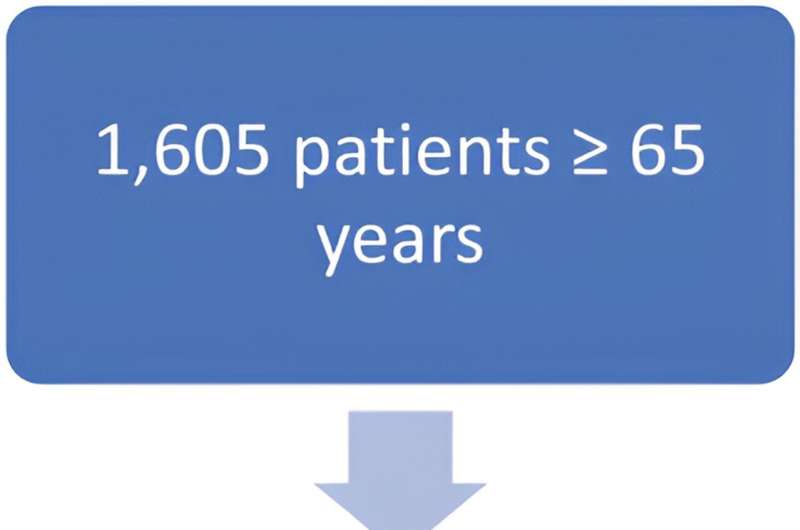This article has been reviewed according to Science X's editorial process and policies. Editors have highlighted the following attributes while ensuring the content's credibility:
fact-checked
trusted source
proofread
Understanding the impact of transferring patients with dementia between hospitals

It is common for individuals seeking medical care for symptoms of concern to go to the nearest hospital. Physicians there may determine the facility cannot provide the care they believe the patient needs and recommend transfer to another hospital offering a higher level of care or specialized services.
In a recent study, researchers from Regenstrief Institute and Indiana University School of Medicine reviewed electronic health records to compare older adults with dementia transferred to another hospital with older adults who did not have dementia. The researchers found significant differences in treatment following transfer.
- Patients with dementia more often received a geriatrics or palliative care consultation after transfer.
- Patients with dementia were less likely to be full code (full resuscitation support) at admission after transfer.
- Patients with dementia were less likely to be discharged to home after transfer.
- Patients with dementia less often receive intensive care or a procedure within 48 hours of transfer.
- Patients with dementia were less likely to be admitted to an intensive care unit (ICU) after transfer.
- Patients with dementia were less likely to receive specialist procedures after transfer.
Dementia did not significantly influence the odds of death prior to discharge following interhospital transfer; however, older age, male gender, and "do not resuscitate" (DNR) code status were associated with higher odds of death.
"Our findings, which show that older adults with dementia were less likely to receive intensive care or a medical procedure within the first two days of transfer, highlight the need to focus very closely on the patient with dementia and their family to determine if transfer provides optimal care and to build out our infrastructure in a way that supports that," said study senior author and geriatrician Malaz Boustani, M.D., MPH, of Regenstrief Institute and IU School of Medicine.
"For example, telecare rather than transfer to a tertiary care center may be the answer for many patients in this vulnerable population."
"When it comes to transfers, there are potentially significant risks to the patient population of older adults with dementia as well as other factors that we ought to be taking into account and discuss with the family and patient prior to transfer," said study co-author and geriatrician Kathleen Unroe, M.D., MHA, of Regenstrief Institute and IU School of Medicine.
"It might be hard for the 85-year-old spouse to drive an hour and a half to the next hospital to participate in discussions about the patient's care. So, we are reassessing the question about whether these transfers make sense and are the best quality of care for people with dementia."
"Transfer centers, which coordinate the patient transfer process, are now common in the United States. In next-generation transfer centers, I'd like to see a care coordinator who can help facilitate expert, detailed evaluation of all options with the patients and their families in a way that leads to a truly comprehensive discussion of risks, benefits, and alternatives for this vulnerable group of patients," said study first author and emergency medicine physician Nancy Glober, M.D. of IU School of Medicine.
"We ought to be very considerate and focused on patient-centered care, particularly in this population."
"Impact of interhospital transfer on patients with Alzheimer's disease and other related dementia" is published in Alzheimer's & Dementia: Diagnosis, Assessment & Disease Monitoring.
More information: Nancy Glober et al, Impact of interhospital transfer on patients with Alzheimer's disease and other related dementias, Alzheimer's & Dementia: Diagnosis, Assessment & Disease Monitoring (2023). DOI: 10.1002/dad2.12469





















